
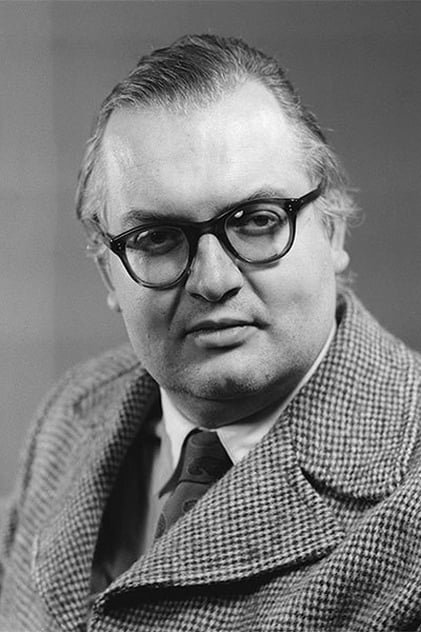
Friedrich Dürrenmatt
Born: January 5, 1921
Died: December 14, 1990
in Konolfingen, Bern, Switzerland
Died: December 14, 1990
in Konolfingen, Bern, Switzerland
Friedrich Dürrenmatt (5 January 1921 – 14 December 1990) was a Swiss author and dramatist. He was a proponent of epic theatre whose plays reflected the recent experiences of World War II. The politically active author's work included avant-garde dramas, philosophical crime novels, and macabre satire. Dürrenmatt was a member of the Gruppe Olten, a group of left-wing Swiss writers who convened regularly at a restaurant in the city of Olten.
Dürrenmatt was born in Konolfingen, canton of Bern, the son of a Protestant pastor. His grandfather, Ulrich Dürrenmatt, was a conservative politician. The family moved to Bern in 1935. Dürrenmatt began studies in philosophy, German philology, and German literature at the University of Zürich in 1941, but moved to the University of Bern after one semester where he also studied natural science. In 1943, he decided to become an author and dramatist and dropped his academic career. In 1945–46, he wrote his first play It Is Written. On 11 October 1946, he married the actress Lotti Geissler.
Dürrenmatt traveled in 1969 to the United States, in 1974 to Israel, and in 1990 to Auschwitz in Poland.
In 1975 he played himself in the film End of the Game.
Dürrenmatt also enjoyed painting. Some of his own works and his drawings were exhibited in Neuchâtel in 1976 and 1985, as well as in Zürich in 1978.
His wife Lotti Geissler died on 16 January 1983. Dürrenmatt married another actress, Charlotte Kerr, in 1984.
In 1990, he gave two famous speeches, one in honour of Václav Havel ("Die Schweiz, ein Gefängnis?/Switzerland a Prison?"), upon discovering he had been spied on for five decades, along with 800,000 of his left-leaning fellow citizens, by the Swiss secret service; the other in honour of Mikhail Gorbachev ("Kants Hoffnung/Kant's Hope"). Dürrenmatt often compared the three Abrahamic religions and Marxism, which he also saw as a religion.
Dürrenmatt died from heart failure on 14 December 1990 in Neuchâtel.
Since 2000, his works are exhibited in Centre Dürrenmatt, a part of the Swiss National Library.
Like Bertolt Brecht, Dürrenmatt explored the dramatic possibilities of epic theatre. Next to Brecht, he has been called its "most original theorist".
When he was 26, his first play, It Is Written, premiered to great controversy. The story of the play revolves around a battle between a sensation-craving cynic and a religious fanatic who takes scripture literally, all of this taking place while the city they live in is under siege. The play's opening night in April 1947, caused fights and protests in the audience. Between 1948 and 1949, Dürrenmatt wrote several segments and sketches for the anti-Nazi Cabaret Cornichon in Zürich; among these, the single-act grotesque short play Der Gerettete (The Rescued). ...
Source: Article "Friedrich Dürrenmatt" from Wikipedia in English, licensed under CC-BY-SA 3.0.
Dürrenmatt was born in Konolfingen, canton of Bern, the son of a Protestant pastor. His grandfather, Ulrich Dürrenmatt, was a conservative politician. The family moved to Bern in 1935. Dürrenmatt began studies in philosophy, German philology, and German literature at the University of Zürich in 1941, but moved to the University of Bern after one semester where he also studied natural science. In 1943, he decided to become an author and dramatist and dropped his academic career. In 1945–46, he wrote his first play It Is Written. On 11 October 1946, he married the actress Lotti Geissler.
Dürrenmatt traveled in 1969 to the United States, in 1974 to Israel, and in 1990 to Auschwitz in Poland.
In 1975 he played himself in the film End of the Game.
Dürrenmatt also enjoyed painting. Some of his own works and his drawings were exhibited in Neuchâtel in 1976 and 1985, as well as in Zürich in 1978.
His wife Lotti Geissler died on 16 January 1983. Dürrenmatt married another actress, Charlotte Kerr, in 1984.
In 1990, he gave two famous speeches, one in honour of Václav Havel ("Die Schweiz, ein Gefängnis?/Switzerland a Prison?"), upon discovering he had been spied on for five decades, along with 800,000 of his left-leaning fellow citizens, by the Swiss secret service; the other in honour of Mikhail Gorbachev ("Kants Hoffnung/Kant's Hope"). Dürrenmatt often compared the three Abrahamic religions and Marxism, which he also saw as a religion.
Dürrenmatt died from heart failure on 14 December 1990 in Neuchâtel.
Since 2000, his works are exhibited in Centre Dürrenmatt, a part of the Swiss National Library.
Like Bertolt Brecht, Dürrenmatt explored the dramatic possibilities of epic theatre. Next to Brecht, he has been called its "most original theorist".
When he was 26, his first play, It Is Written, premiered to great controversy. The story of the play revolves around a battle between a sensation-craving cynic and a religious fanatic who takes scripture literally, all of this taking place while the city they live in is under siege. The play's opening night in April 1947, caused fights and protests in the audience. Between 1948 and 1949, Dürrenmatt wrote several segments and sketches for the anti-Nazi Cabaret Cornichon in Zürich; among these, the single-act grotesque short play Der Gerettete (The Rescued). ...
Source: Article "Friedrich Dürrenmatt" from Wikipedia in English, licensed under CC-BY-SA 3.0.
Movies for Friedrich Dürrenmatt...
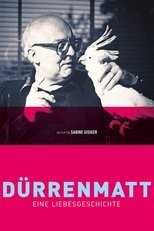
Title: Dürrenmatt - A Love Story
Character: Self (archive footage)
Released: October 15, 2015
Type: Movie
This cinematic feature documentary honors the man, thinker, author, and painter Friedrich Dürrenmatt with an intimate memorial.



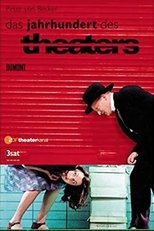
Title: Das Jahrhundert des Theaters
Character: Self
Released: April 6, 2002
Type: TV
"The Century of the Theater" - From the "birth of the director" to the "heroes of modernity" - an overview of the world of theater - illuminates the interaction with the history of the past hundred years is also shown.

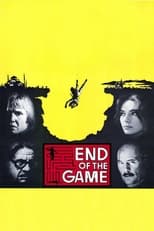
Title: End of the Game
Character: Lamont Friedrich
Released: September 21, 1975
Type: Movie
Hans Baerlach is a Swiss police detective who has dedicated much of his career to pursuing powerful and allegedly murderous businessman Richard Gastmann. Though Baerlach's partner meets his demise while investigating Gastmann, his replacement, Walter Tschanz, is undaunted. Meanwhile, the lovely Anna Crawley becomes involved in the case, which proceeds to take many twists and turns.

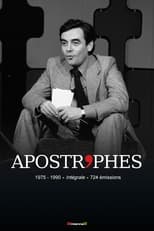
Title: Apostrophes
Character: Self
Released: January 10, 1975
Type: TV
Apostrophes was a live, weekly, literary, prime-time, talk show on French television created and hosted by Bernard Pivot. It ran for fifteen years (724 episodes) from January 10, 1975, to June 22, 1990, and was one of the most watched shows on French television (around 6 million regular viewers). It was broadcast on Friday nights on the channel France 2 (which was called "Antenne 2" from 1975 to 1992). The hourlong show was devoted to books, authors and literature. The format varied between one-on-one interviews with a single author and open discussions between four or five authors.


Title: Studio III - Aus Kunst und Wissenschaft
Character: Self
Released: September 24, 1965
Type: TV


